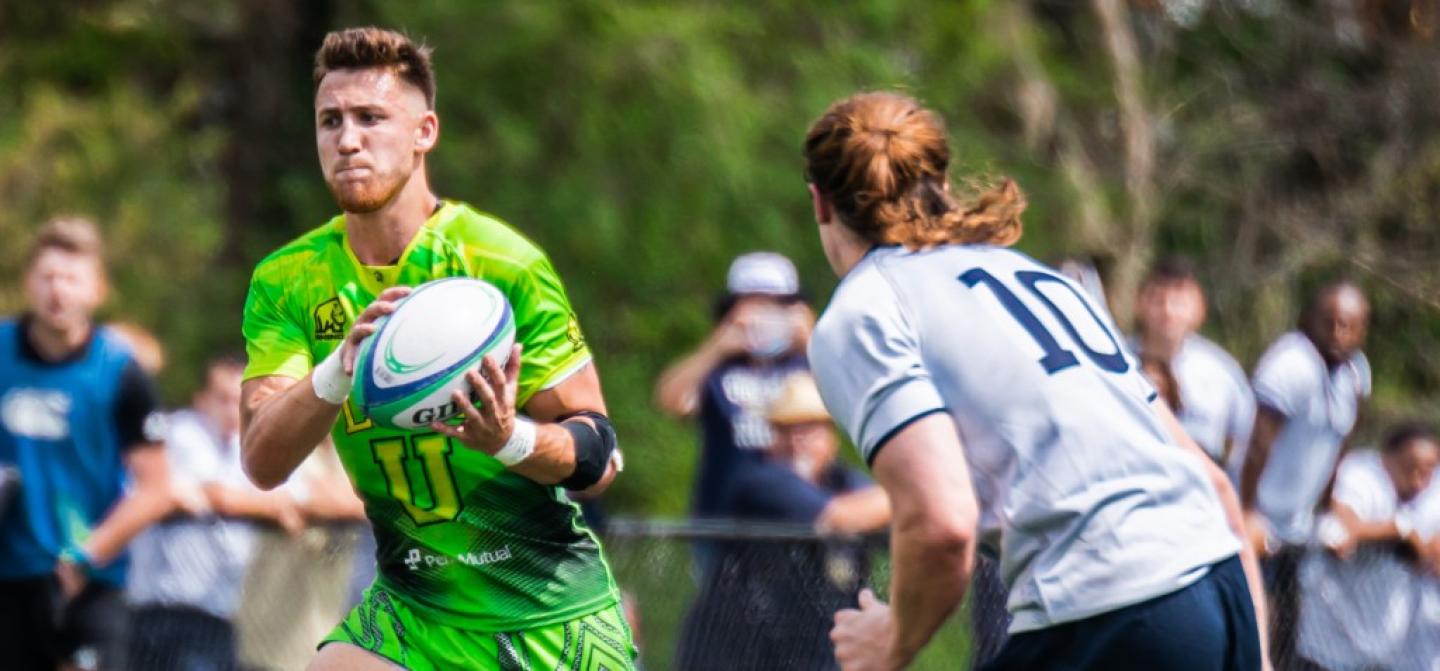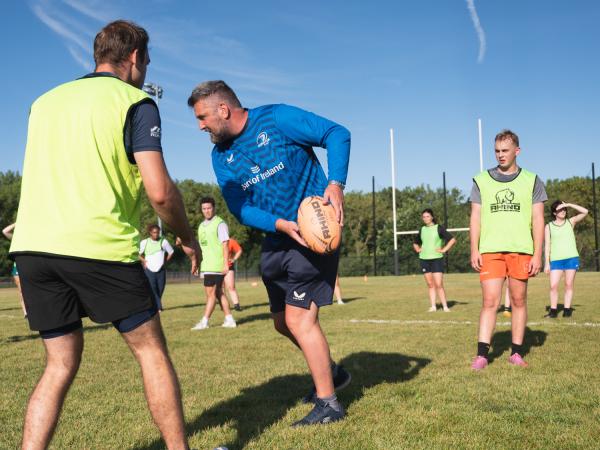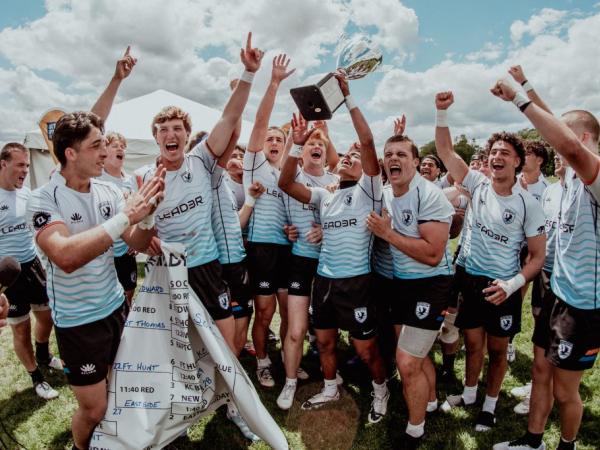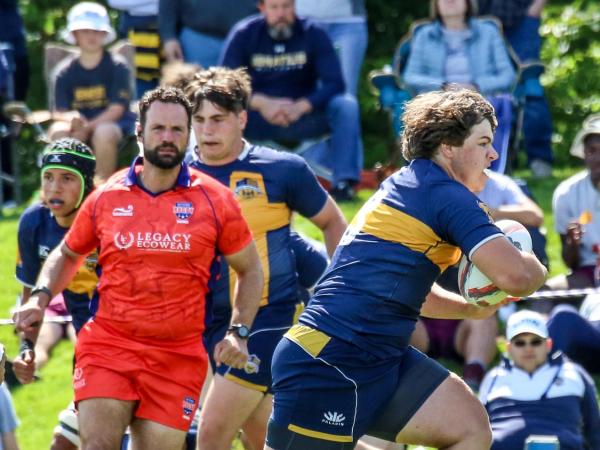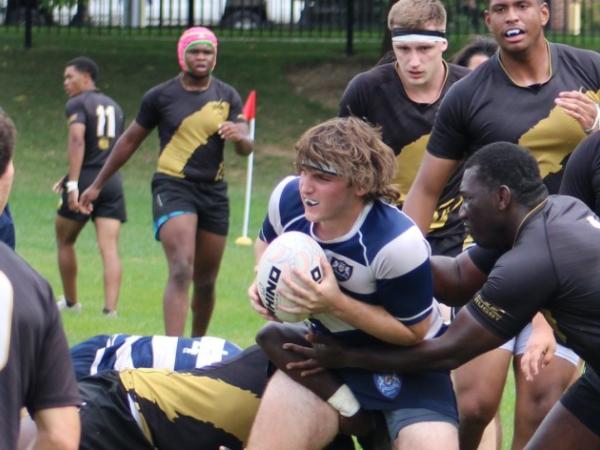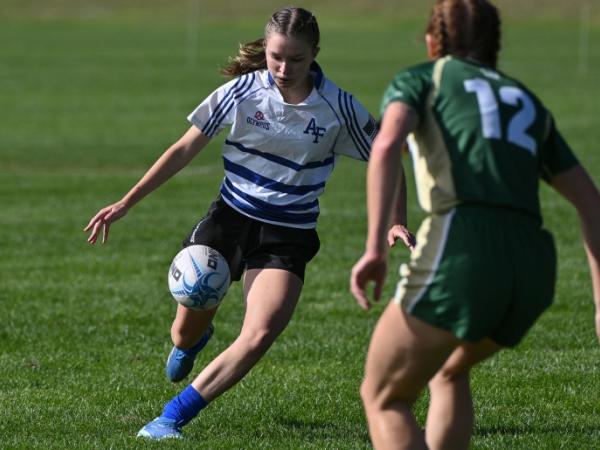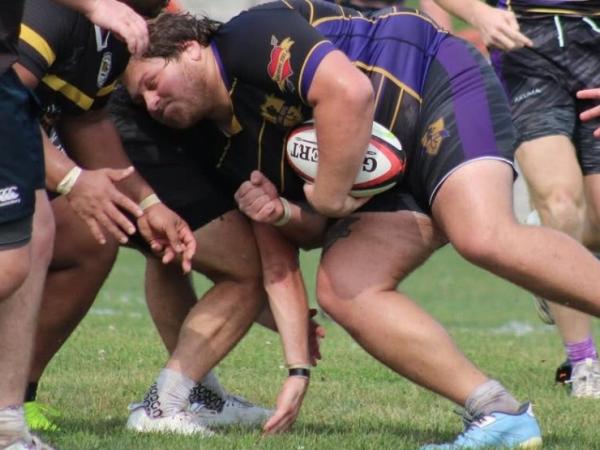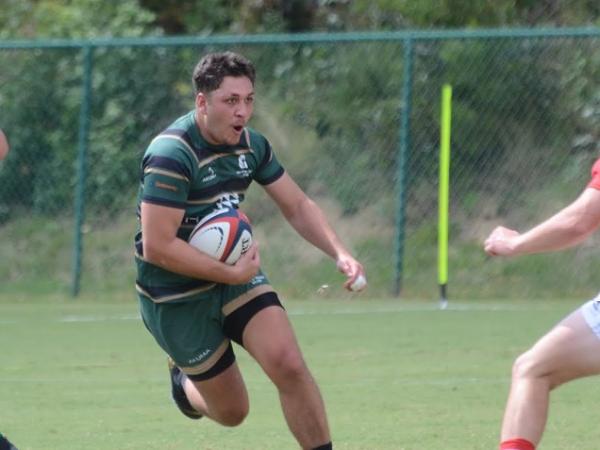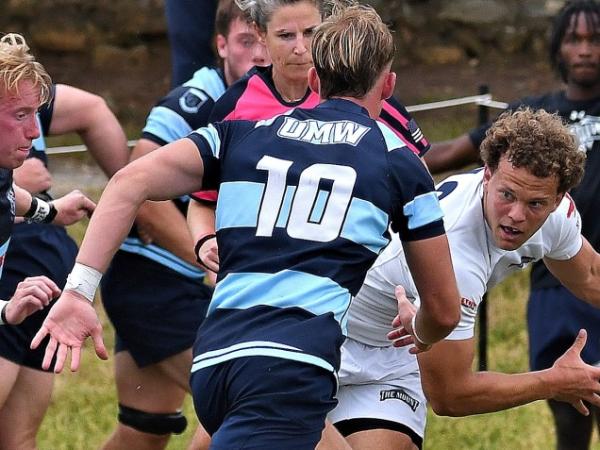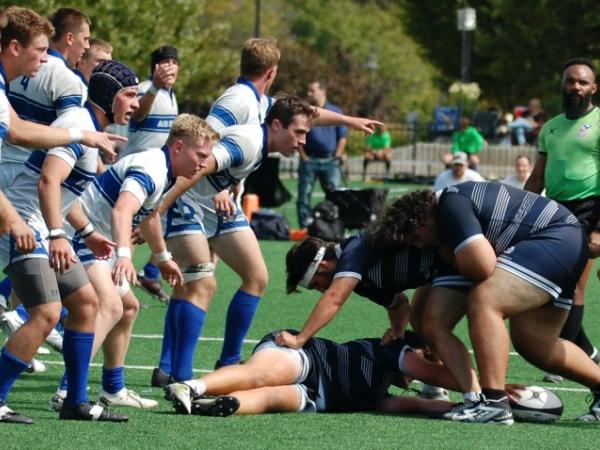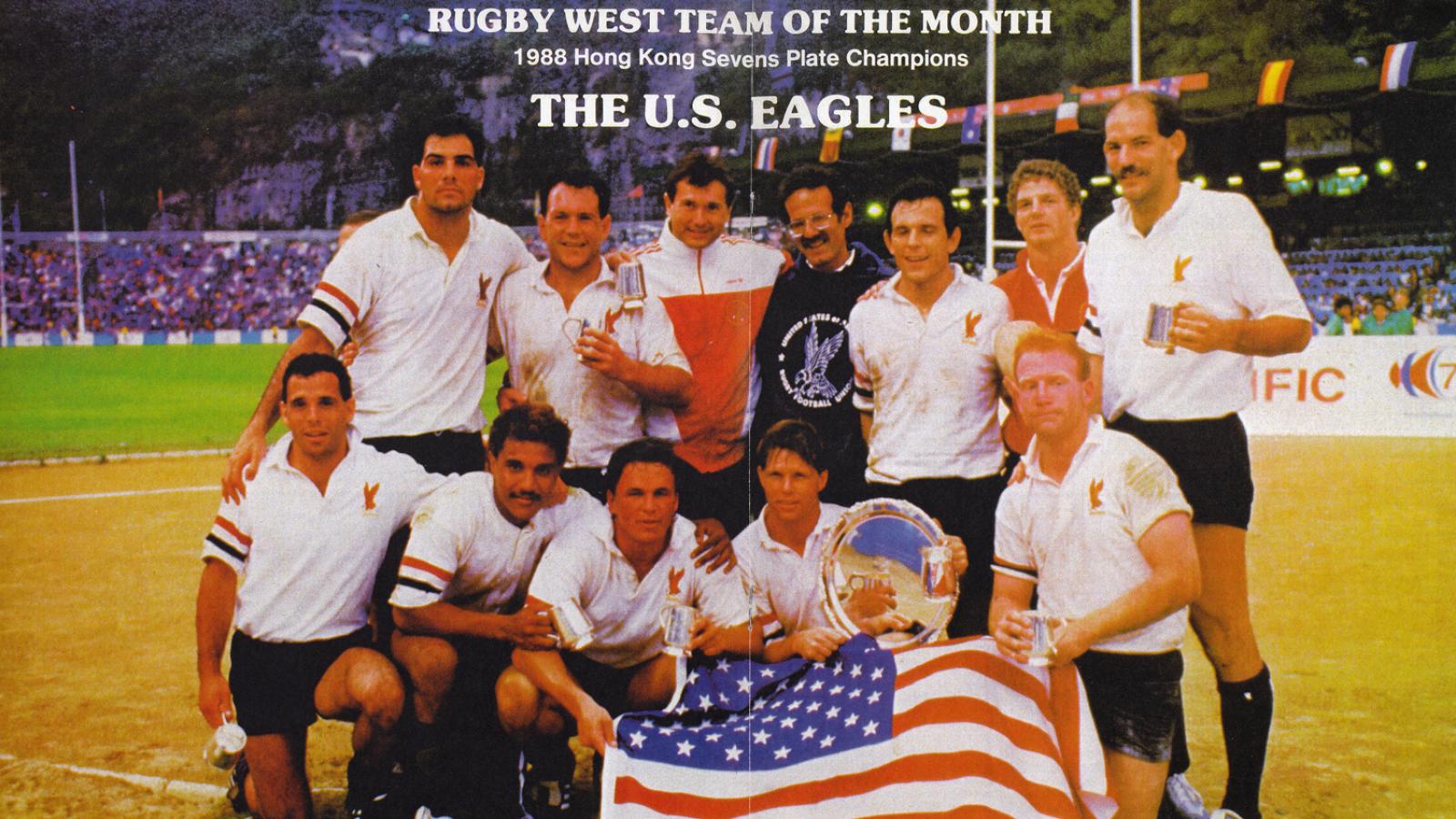After a year when there wasn't much rugby, making it that much more difficult for college players to move and connect with senior clubs, we're actually seeing a very strong connection between collegiate rugby and club rugby in the USA Club 7s Championships.
This might be because the colleges actually had an easier time of finding 7s games in the spring, and is in part because senior clubs always rely a little bit on college talent—they tend to bring that speed and elusiveness that the senior 7s teams are looking for. The other reason for the heavy college representation in Tukwila is the tournament's foreigner rule. The rule is the way it is because the organizers reason that this is a major pathway to the USA team, and the USA Men's and Women's 7s teams need to have US citizens on their roster (that's an Olympic rule).
So on rosters of 13 at least nine players have to be citizens, and only then if one of the other four has a green card. If you can't come up with a green-carded player then the 13th member of your roster has to be a citizen too. It's (marginally) easier to find citizens in college rugby than in the club game.
What is certainly interesting on the men's side is that the collegiate products come from all over the map. It's not like the successful 7s clubs just draw players from the top five or six collegiate programs—far from it.
The Exception That Proves the Rule
The major exception to all of that is Atlanta Old White, which might actually be better off calling itself Atlanta Old Green given how many recent Life University grads are on the team. By far Life is the most-represented university at Club 7s Nationals, with well over 30 players, including several women, on various clubs. AOW, with the notable exception of Arkansas State alum John Scotti, is packed with Lifers.
We do see a few Saint Mary's players in at Life West. This should be something we see more of because Saint Mary's plays some good 7s. But they all have ended up with the Gladiators with 2020 Scholz Award-winner Payton Telea-Ilalio, USA 7s camp attendee Inoka Waqavesi, all-everything Mike McCarthy, and Power Runner Alex Glover. The thing about Life West is, that's not even all of it. Capped halfback Devereaux Ferris, 7s capped Naima Fualaau, and coast-hopping talent Gavan D-Amore-Morrison (AIC) are all on that team, as is long-ago Central Washington All American and later capped Eagle Tim Stanfill. Yikes.
But Then Again ...
But then you look at teams like the Austin Huns, which has at least seven different colleges represented, with only University of Arkansas (Corey Jones, Jack Casey) having more than one. The Chicago Lions are a lot like that, with nine different colleges represented, with the likes of former Western Michigan No. 8-Flyhalf Tom Kacor (always a useful positional combination in 7s) and former Louisville threat Terran Meek, Kentucky's talented Kai Carlberg, and Indiana standouts Will Chevalier and Jake Hidalgo all looking good.
Then you've got teams like Mystic River, which looks for players who are smart and dedicated, and don't worry whether the college team they played for was well-known or not. Mystic will do well with players from Springfield College, Harvard, Northeast, Susquehanna, Plymouth State, West Point, and New England College, which is quite a mix.
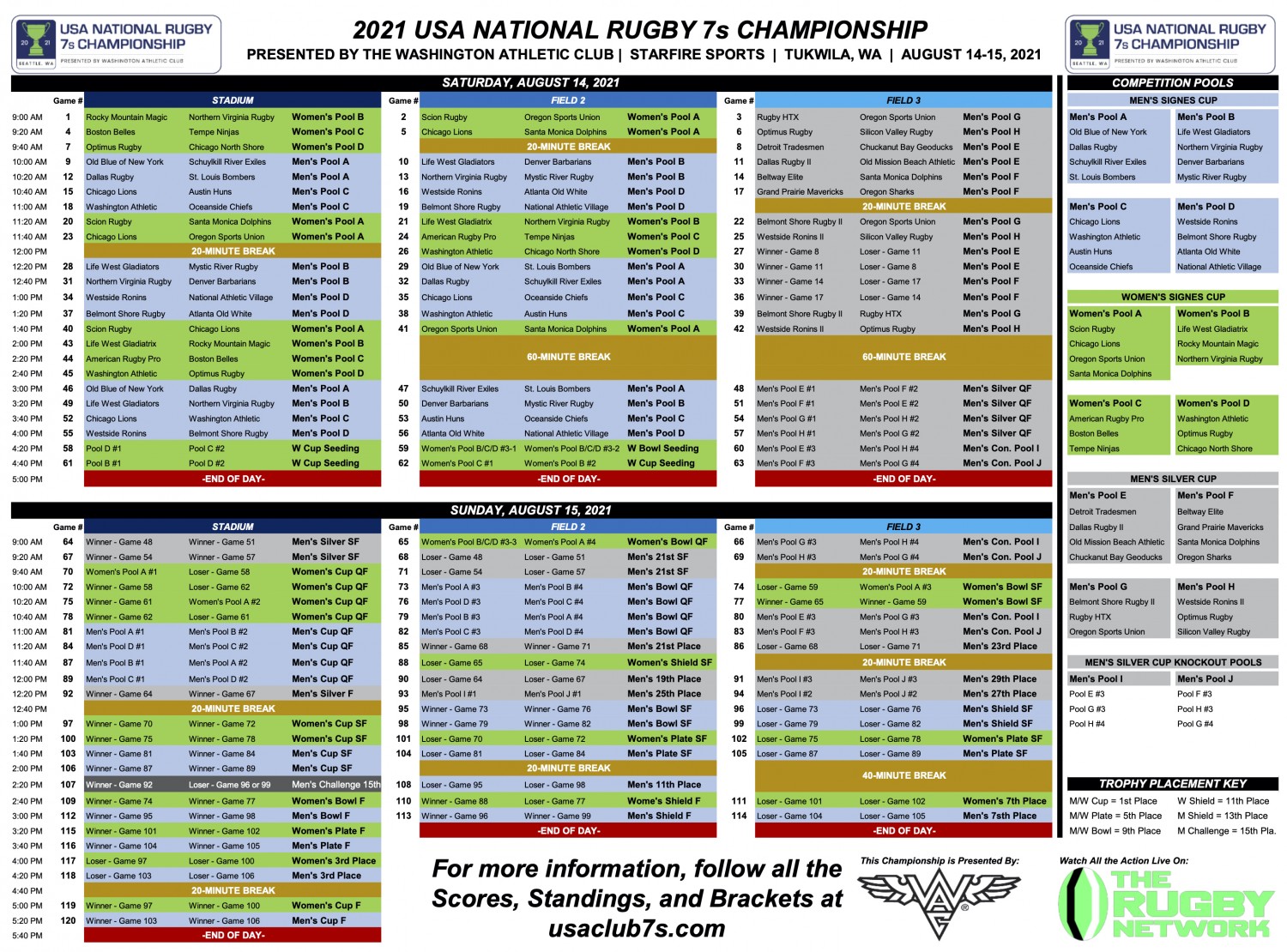 Regionalization
Regionalization
You do see some regional influence on some of these teams. Mystic River (Boston) is heavily New England. Northern Virginia draws players from James Madison, Mary Washington, George Washington, Virginia, and Old Dominion, which makes sense. Even Arizona player Robert Figley is really a local kid. But you also have the liked of Eric Populus who was the alpha and omega for Eastern Washington a few years—a big, imposing player who could run and pass and step you, too.
HTX (Houston) draws players from Texas A&M and Louisiana Tech, but also Minnesota Duluth (the lanky and multi-skilled Trace Bolstad) Cal Poly, and Central Washington.
Dallas has an Arkansas State influence, with Dylan Carrion still carrying the load, which he has been doing for some years now. And it's fair to say that the Chicago Lions are heavily Illinois, with players coming from colleges all around the country, but who played their high school rugby in the Land of Lincoln.
Old School
Meanwhile, Belmont Shore is more of an experienced men's club that has a few younger guys on the roster. For the most part, this is a Belmont Shore team of players who always play for Shore. Beltway Elite is sort of the in the middle of that spectrum, with some college talent (another from that great UMD team in Luc Desroches), but most have been with DC-area teams for a while.





